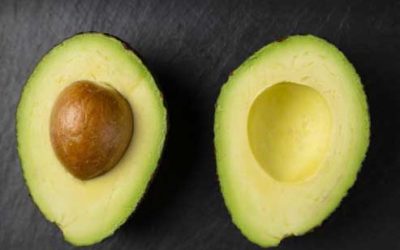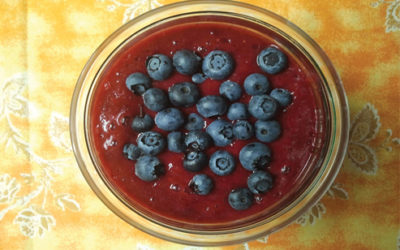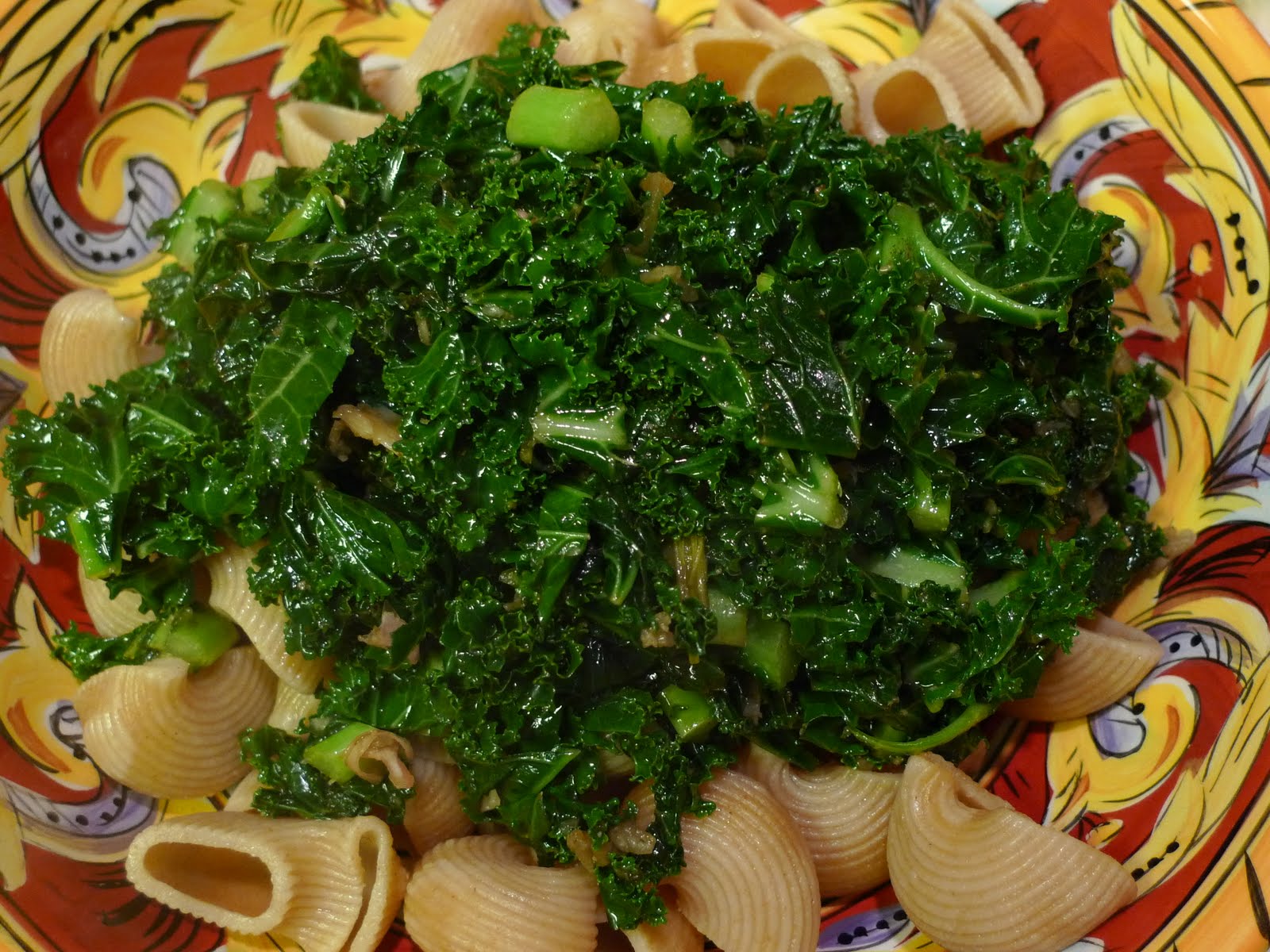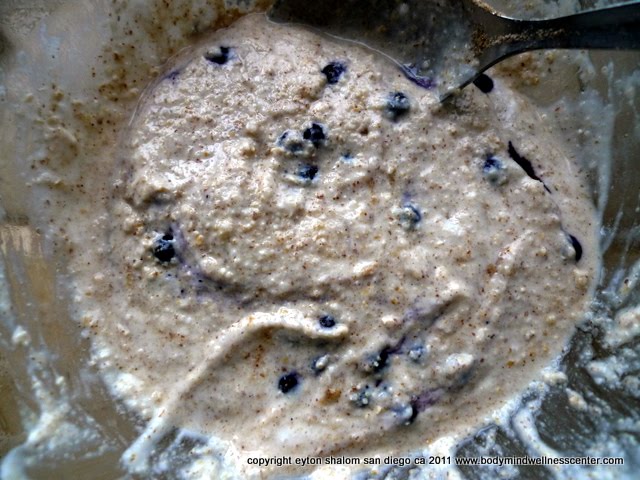Vata Dosha
Vata is the expression in our body, mind, and nervous system of the qualities Wind and Space provide in the natural world. Everything you can say about Vata dosha is everything you can say about the intrinsic nature of Wind and Space. Wind is air moving. When Air moves it cools and dries. Space is a vast expanse of cold, dry, and dark.
Vata is cold, dry, mobile, light, and expansive. It is the source for all movement within and by the body. That includes the very process of thought, which involves movement both subjectively–the movement of ideas, words, feelings, but even biologically, the movement of biochemicals from axon to dendrite.
Movement within the body includes movement within the mind, movement of nervous impulses within the body, movement of food through the gut from chewing to elimination, movement of Prana from the air and into the tiniest measure of tissues, even, to be true, at the sub-atomic level, where protons, neutrons, and electronic move without cease.
On the grosser level Vata collects in the joints and effects joint health, the joints are an example of “spaces” within the body, that are also hinges. Hinges move constantly and need lubrication. And there is the rub, Vata is naturally dry, so that is why Vata dosha elevation affects joint health, and why Vata prakruti (intrinsic constitutional type) often has a susceptibility to joint pain, as well as dryness everywhere in the body, from the skin to the eyes and mouth, to the gut, the personality type.
On this last note, because of the nature of ether or space, Vatas are naturally inclined towards mind expansion. They can be be naturally artistic and naturally philosophic. To lie down on your back as a 15 year old, and stare out at the universe and wonder how and why, is an expression of Vata dosha.
Compare that to the 15 year old who is already accumulating money thru a small business and planning for the future, or to the 15 yr old that already wants to be President, or a divorce lawyer or a plastic surgeon. Or to the boy or girl at that age that just loves sports, and wants to play football, eat pizza, sleep, and drink beer.
The challenge for Vata dosha is to remain grounded, warm, moist, and calm. Vata is easily disturbed and made ill by noise, excessive activity and movement–from international travel to changing work and home, or long commuting. Vata is ultimately most disturbed by an uncalm mind. Vata NEEDS slow relaxing gentle Yoga asana practice, and daily deep slow Pranayam and Meditation to calm her busiest of minds.
Vata’s default reaction to real or perceived danger is fear. Vata is the dosha most prone to anxiety and nervous system/mental health disorders. Its imperative in a Vata disrupting society such as the modern world full of speed, to have a regular practice that compensates as much as possible.
You cannot control the neighbor’s noise, by you can work on your nervous system response to it. And you can dress warmly, and eat a diet rich in warming grounding foods. And you can cultivate warm sweet connections with other humans and animals. The worst thing for Vata, especially as we age, is to be isolated.
Vata dosha is intrinsically dry.You hang your wash out on a cloudy cool day and it takes forever to dry. But if there is wind it dries quickly. At the dentist they dry your teeth and gums to do their work with puffs of force air. Wind is by nature dry and drying.
Vata doshas is elevated by dry climate, food, and dry unemotional people. Vata’s benefit from warm, moist, food and people who are naturally sweet, because the sweet taste is full of water and earth, naturally pacifying to Vata dosha.
Vata dosha is intrinsically cold, like wind and space are. When its hot in India you turn on the ceiling fan. When your food is too hot you fan it with a palm leaf van. If you burn yourself you blow on it. Wind is by nature cold and cooling. This is why Vata needs warming food, loves a warm moist climate, and prefers warm emotionally available people. And its why any kind of cold from herbs to food to air, will increase Vata pathologically.
Vata is mobile. Its fast. Like wind. Think: tropical winds. Solar storms. Vatas do everything fast. Teach your Vata child how to slow down. Too much speed of any kind makes Vata ill. Being around nervous chatterbugs for too much time, too much travel, commuting, noise, all elevate Vata. Too much change. Vata needs smooth regularity. Vata is the dosha that suffers most from moving, changing jobs, going through divorce.
Vata is the dosha whose natural response to real or perceived danger is fear. Fear increases movement in the body, because in nature our nervous system response to danger is to flee. We flee by running. But what about when the danger is imagined and inchoate. What about when the thing you are fleeing happened years ago? Then we often see diseases of pathological movement such as IBS-D, Interstitial cystitis, Insomnia, and Anxiety disorders. In the extreme we see paranoia and conspiracy theories.
This is why Ayurveda recommends that Vata dosha have a lifestyle full of regularity, warmth, moisture, and activites that calm and lower the nervous system and mind. As a starting point Vata dominant types or people with Vata Vikruti should just practice slowing down. Walk slowly. Talk slowly. Chew slowly.
Its why Vata dosha needs a diet that is predominately cooking food, with plenty of fat and warming, but not stimulating spices (little or no chillis). The diet for dosha should have more sweet, sour, and salty tastes, like starches, fruits, and healthy salt in moderation, but also the “salt” of food high in minerals. Its why they should avoid dry food, from food made without sauces (like American food) to dried fruits or dry crackers.
Space, sometimes called Ether, is vast, cold, dark, and dry and weighs nothing. Illuminated and heated only by the fire of stars, space is a vast expanse of nearly nothing. A hydrogen atom here or there. Some uber-light neutrinos passing thru, a by product of stars, not space. The space or ether of Vata manifests both in the physical spaces of the body, like the joints, and in Vata’s tendency to mind expansion.
This is why Vatas are heavily represented in the arts and philosophy, both of which involve a natural tendency to expand beyond the mundane world of dog eat dog and accumulation of wealth. The challenge for naturally ungrounded Vata is to keep the feet on the ground while the mind reaches up to heaven.
Vatas can be overly philosophical, overly intellectual in that they process emotions via the intellect instead of the heart. They can get so lost in ideas that they forget to eat. Again, this why a good natural remedy for Vata is to be connected to the earth through working in the garden in the warm sun. Vata’s have to be careful about overdoing exercise or social engagement, because the Vata body is not naturally strong, and the nervous system needs recuperation from the excitement of other people.
But Vata’s can strengthen their body and mind with the Vata pacifying diet, full of nourishing food and herbs like nuts, seeds, flesh food cooked in stews and curries, bone broth (no, Ayurveda does not suggest a vegetarian diet) saffron, ashwagandha, Chinese Qi and Yang tonic herbs, and a regular meditation, pranayam, and/or Tai Qi practice.
A wonderful lifestyle practice that is a very powerful way to pacify Vata dosha is the weekly “Oil bath.” Read about “Benefits of Ayurvedic Oil Bath”
Morroccan Beet Salad for Vata Dosha
Here's a Beet Salad for Vata Dosha I learned from my Morrocan friend Edith that I like to make in Autumn and Spring as a side dish with heavier food. Beet are an excellent Vata vegetable as they are easy-to-digest and, like turnip and radish, and excellent digestive...
Vegan Protein for Ulcerative Colitis
Vegan Protein for Ulcerative Colitis and other digestive issues has to be easy to digest and, according to Ayurveda, should not aggravate any of the three doshas. In Ayurveda we call light, easy to digest food that pacifies all three doshas, tridoshic, or Sattvic. A...
Irritable Bowel Syndrome Treatment: Acupuncture, Ayurveda, and Chinese Herbs
What is Irritable Bowel Syndrome (IBS)? Irritable Bowel Syndrome (IBS) is a functional disorder of the Large Intestine (Colon) that can cause cramps, bloating, gas, pain, diarrhea, or constipation. People with IBS-D will have diarrhea on a regular basis with...
The Spiritual Qualities of Vata in Winter
Vata in Winter and Late Autumn Ayurveda understands that a healthy spirit and a healthy body, is better than just one or the other. In describing the passage of space through time Ayurveda also describes the way in which the qualities of each dosha elevate in nature...
Cucumber Avocado Summer Soup
Cucumber Avocado Summer Soup is light, cooling, full of fiber, easy to digest, and safe for all three Doshas
Are Colonics Good for You?
On the issue of Are Colonics Good for You?--from the standpoint of Ayurveda and Acupuncture theory, Colonic "Irrigation", High Colonics, and Colon Cleanses are a disaster. Better Ways to Treat Your Colon They are exactly the wrong way to treat our guts, which are like...
Epazote Mexican Herb to Relieve Gas
Epazote Mexican Herb to Relieve Gas is popular as a fresh herb in southern Mexican cuisine. It is most famously used in black beans, and is said to have a "carminative" effect. Carminative herbs and spices are medicines that, in the terms of European herbology prevent...
Smoothies for Vata Dosha in Summer
Smoothies for Vata Dosha in Summer: Eating with the Seasons Smoothies for Vata Dosha in Summer is part two of https://bodymindwellnesscenter.com/smoothies-for-vata-dosha/ . In Ayurveda we eat with the seasons, so you can have more raw in Summer when Pitta is...
Mindfulness, Vata Dosha, and Commuting
Mary, from Canada writes, "How should I counter the movement aspect for a vata? I am vata dominant and must travel daily to and from work about a 45 min drive and 20 min walk. I find the walk relaxing and during my car ride I listen to soothing personal development...
Vegan Gluten-Free Cookies with Jam
Vegan, Gluten-Free Thumbprint Cookies with Jam Low-Sugar, Vegan Thumbprint Cookies are fun to make! Kids love making them and eating them. A great way to get nutrient dense nuts, seeds, and legumes into the diet. I grind my pumpkin seeds and roasted chickpeas in my...
Vitamin B-12 Deficiency
Vitamin B-12 Deficiency is very common in people over 50, and in people who use drugs that reduce stomach acid, and also that take the antidiabetes drug Metforman. I find Vitamin B-12 supplementation very valuable in the treatment of neurological disorders,...
Ayurvedic Summer Cabbage Salad with Beet and Onion
Ayurvedic Summer Cabbage Salad with Beet and Onion I am a huge fan of cabbage salad. When I was a strict vegetarian it must have been its hearty quality and chewy texture that appealed. Now that I am an omnivore, I value cabbage both for its delicious, slightly sweet...
Perseid Meteor Shower: Five Elements in Ayurveda and Chinese Medicine
Tonight's annual Perseid meteor shower got me thinking about the theory of the five elements in Ayurveda and Chinese medicine.. Chinese Medicine and Ayurveda Describe Life as a Process of Transformation Chinese Medicine and Ayurveda Describe Life as a Process of...
Pasture Raised Meat and Milk in Ayurveda and Chinese Medicine
Pasture raised Meat and Milk in Ayurveda and Chinese Medicine is meat and milk as our ancestors ate it. Our hunter gatherer ancestors obviously did not drink milk, as they did not yet practice animal husbandry. But they were certainly not vegans or vegetarians, as the...
Menopause Natural Treatment: Ayurveda and Chinese Medicine
In Chinese Medicine and Ayurveda Menopause Natural Treatment begins with the premise that menopause, and andropause, like puberty, like the transitions that occurs around ages 2, 5, and 36, are just that, transitions, not diseases. We get symptoms because of the wild...
Jewish Style Sweet and Sour Vegan Cabbage
Jewish Style Sweet and Sour Vegan Cabbage Cabbage is one of nature’s miracle foods. You don’t have to buy exotic foods like Goji berry to have a healthy diet. Goji berries are great, and are used in Chinese medicine as food medicine and in medicinal formulas for...
Anger and Fear: How Our Nervous Systems Make Us Sick
Anger and Fear: How Our Nervous Systems Make Us Sick Chinese Medicine attributes a minimum one third of disease as due to the effects of excessive amounts of emotions like anger and fear, but also sadness, grief, worry, on our bodies via the nervous system....
Ayurvedic Okra Masala
Indian Style Tri-doshic Okra Masala Here is one of my favorite Okra recipes: Indian Style Tri-doshic Okra Masala. There are many ways to make Okra. Iraqi's cook it with onion and tomato. My friend Mrs. Mehdi with onion, cumin, and black pepper. My Persian friend adds...
Mindfulness Meditation Body Scanning
Mindfulness Meditation Body Scanning One of the challenges of modern life is balancing the stress response with the relaxation response. Mindfulness Meditation Body Scanning, found in Yoga, Tai Qi, and Mindfulness Meditation (Buddha was, after all, a Yogi before...
Smoothies for Vata Dosha
Smoothies for Vata Dosha--Part One A reader had this comment recently about Smoothies for Vata Dosha, after reading this article about Raw Veggies or Salad for a Vatta Dominant Person. Are Smoothies Better than Juicing for Vata Dosha? "I see that the key here is to...
Ginger In Ayurveda and Chinese Medicine
Ginger Root: Universal Medicine There are no panaceas in medicine, but if there were going to be one, it would have to be the humble Ginger root. Ginger is called "Vishabhesaj" in Ayurveda, Sanskrit for "universal medicine." That is both because of its wide...
Ayurveda: Vegeterianism or Not
Does Ayurveda propose vegetarianism and a vegeterian diet for all? Many modern Ayuvedic physicians, especially those teaching in Europe and the West, espouse lacto-vegeterianism as the ideal diet for everyone. But is this an accurate reflection of the Ayurvedic texts...
Vata Balancing Tea
A simple way to take the edge off of the cold, windy, dryness of the late Autumn early Winter Vata season is with a good Vata tea.. Why Vata Balancing Tea? To balance Vata is to reduces it. We reduce, or pacify our doshas, because their natural tendency is to...
Vata in Winter
Let's talk about what happens to Vata in Winter and how it relates to the qualities of the elements Air and Space, or Wind and Ether (as in etheric) that the Vata dosha is a manifestion of. Ayurveda describes the ways in which different kinds of foods,...
Benefits of Ayurvedic Oil Bath
Benefits of Ayurvedic Oil Bath: Foundation of Healthy Living Ayurvedic Oil Bath (Abhyangha) is self massage with warm oil. In Ayurveda its traditionally done once a week by the whole family for wellness and prevention of disease. Regular oil massage, or Abhyanga, is...
Anu Thailam Ayurvedic Nasal Oil
What Is Anu Thailam Anu Thailam is the name of a wonderful Ayurvedic Nasal Oil that is a very effective remedy for allergies, sinusitis, some headaches, and head colds. Thailam is the word in the South Indian Dravidian languages like Tamil, Malayalam, Kannada, and...
The Nature of Vata Dosha and How to Pacify It
The way to prepare dishes that pacify Vata Dosha is to first understand what Vatta embodies. Vata dosha is the manifestation of Air and Space in our human bodies. Air and Space in its pure state is cold and dry. Air only becomes warm due to the effects of fire from...
Daikon Radish: Detoxify and Digest
Daikon Radish is naturally detoxifying. It is pungent, light, and warm, and is delicious in soups, salads, and as a pickled vegetable. Its detox effect is often increased by pairing it with fresh or pickled ginger. Daikon Radish in Chinese Medicine and Ayurveda The...
Ayurveda and Fruits: Match Food to Your Dosha and the Season
What foods match your dosha? Fruits are naturally sweet sour and refreshing. Some fruits, like apples, also have an astringent or drying property, depending on variety, macs more than fiji, for example. Your mouth feels a bit dry after a bite of apple, or quite dry...
Instant Relaxation Stress Busters
Stress busters you can reach for any time. Dial down stress before an important meeting,calm yourself while driving, keep cool when faced with situations or people you find irritating or scary. These proven breathing, body-scanning exercises work. One Minute Stress...
Vata Dosha
Here is a quick guide to Healthy Living for Vata Dosha in Autumn. The foundation of health in Ayurveda and Chinese Medicine are Lifestyle and Diet. To build a temple you have to make the foundation first. Here is a template for a lifestyle that will keep Vata dosha...
21 Tips for for Vata Dosha
21 Tips for Vata Dosha 70% of diseases begin with Vata elevation. In large strokes, Vata is elevated by frenetic, jam packed 24/7 lifestyles, by overstimulation, by cold dry weather and cold dry food, by too much bitter medicines, by raw food, lack of rest, and by the...
Vata Dosha, Fear, Anxiety, and ADDH
Vata Dosha, Fear, Anxiety, and ADDH Vata dosha is the dosha whose nervous system responds to stressors with fear. Anxiety is the cascade of physical and mental responses, or symptoms, that occur when our sympathetic nervous system has been activated by the flight...
Summer Raw Beet, Sardine, and Pasta Salad
Summer is a time when even cold dry (Vata) types or cold damp (Kapha) types can have little more raw foods. One of the ways to make raw foods more compatible for cold types with weaker digestive energy (Agni/Spleen Qi) is to have it in small amounts with other foods...
Kale with Pomegranate Molasses and Cumin
Kale with Pomegranate Molasses and Cumin One of my favorite ways to cook Kale is inspired by the classic Linguine with Broccoli that you find at Southern Italian restaurants. Their method is really simple--olive oil, garlic, lemon, parmesan. I take the olive oil and...
Natural Cranberry Sauce with Dates and Saffron, Low Sugar
It seems silly to buy canned cranberry sauce with a ton of sugar and the bonus of toxic Phtalates, when it is so easy to make it homemade. Takes literally minutes. Boil water, add cranberries and sweetener. Simmer 15 minutes. Voila! Ingredients1 bag cranberries....
Late Autumn/Early Winter Whole Grain n’ Flax Blueberry Pancakes
Rainy Winter Morning Whole Grain Wild Blueberry Pancakes. Rainy winter mornings after long hikes in the San Diego desert make me want pancakes. Good, solid, whole grain ones. The kind that make you feel like you ate food, not syrupy junk. At Trader Joe's the other day...
Does Cauliflower Aggravate Vatta? Creamy Coconut Cauliflower Curry for Summer
Does cauliflower aggravate Vatta?The problem with going for an Ayurvedic consultation and being handed a long list of foods that aggravate one or the other of the doshas is, that first, this is a text book list of foods that tend to aggravate, in most people, but not...
Nearly Tridoshic Cucumber Avocado Summer Soup
Cucumber Avocado Summer Soup2 cups chopped cucumber, peeled if non-organic1 cup avocado1.5 cups plain yogurt or kefir1-2 tbsp fresh bell pepper 3-4 tbs fresh cilantroSalt and Pepper to tasteAyurveda This is a lovely creamy cooling summer soup that in Ayurvedic terms...
How to Make Salad or Raw Veggies for a Vatta Dominant Person
In general, people who are Vata dominant should avoid salad or raw vegetables, especially if in an unbalanced, aggravated state. Vatta, unlike Pitta and Kapha, is rough, not smooth. Raw vegetables are also considered rough; they are made "smooth" by cooking. And since...
My Grandmother’s Jewish Spice Cake, Banana Cake, and Potato Latkes
My Grandmother's Jewish Spice Cake (for the Jewish New Year, Rosh HaShanah) Chinese Medicine observes that not only do different foods have difference "natures" (cold, cool, neutral, warm, hot), for example the heat of cinnamon or lamb vs. the coolness of coconut...
Balancing Vata Dosha in Autumn: Avert the Danger that Has Not Yet Come
Balancing Vata Dosha in Autumn is important because Autumn is the time of year when everyone's Vata Dosha elevates quite naturally, due to the windy, dry and cold weather that develops. Psychologically, too, Autumn is the transition from Summer to Winter, there is a...
Staying Healthy with the Seasons: Fall in Chinese Medicine and Ayurveda
Fall, the Hinge Between Summer and Winter In Chinese medicine, Fall and Spring are seen as the "hinges" between Summer and Winter. The seasons are a kind of love dance between heaven and earth. In Summer, Gaia (Mother Earth) opens like a flower, her energies are at...
Cold Beet Borscht Soup for Summer
Cold Beet Borscht Soup for SummerLet's call this a soup, even though I grew up drinking it out of a glass, and at Yonah Shimmel's Knishery in New York (est.1910) they were still serving it on tap, for $1.25, along with home made Kefir, in little plastic institutional...
Fasting in Ayurveda and Chinese Medicine
Fasting in Ayurveda and Chinese Medicine Fasting in Ayurveda Ayurveda believes that light fasting can greatly benefit your health. Light fasting healthfully stimulates the digestive fire of your entire gut, from your salivary glands to your large intestine, including...
Warming Baked Root and Squash Stew: Vegan or Not
One of the things we look at in Chinese Dietary Therapy is, what are the effects of particular cooking styles on the "energetic" quality of the food; here energy refers to the warming characteristics of the dish. Whereas steaming and quick boiling are mild, and...
Healing Ulcerative Colitis
Ulcerative colitis is a form of inflammatory bowel disease that affects the large intestine. It should not be confused with Irritable Bowel Syndrome. Ulcerative colitis is characterized by the presence of inflammation and ulceration in the intestinal mucosa. The chief...
Baked Roots and Squash Stew: Vegan or Non-Vegan
This is an excellent warming slightly sweet slightly spicy stew that can be made purely vegan, or in a traditional mid-eastern style with ground beef or lamb. Making it with meat is more warming and tonifying, suitable for Vata, but unnecesary for Kapha, or Pitta...
Teff n’ Quinoa Gluten Free Pancakes Recipe
Teff n' Quinoa Gluten Free Vegan Pancakes Recipe Autumn and Winter are ideal times for the warming, grounding quality of of pancakes. But why use pre-packaged, over-salted, sugary, low-fiber pancake mixes whose pre-ground grains may or may not be fresh, when...





